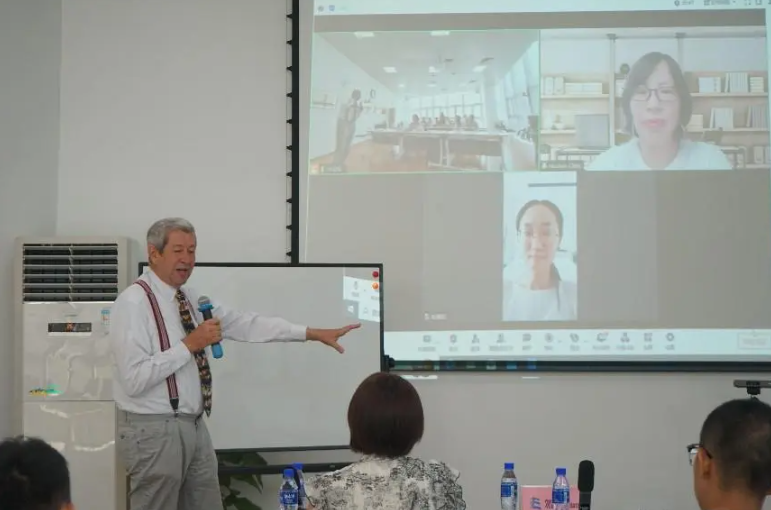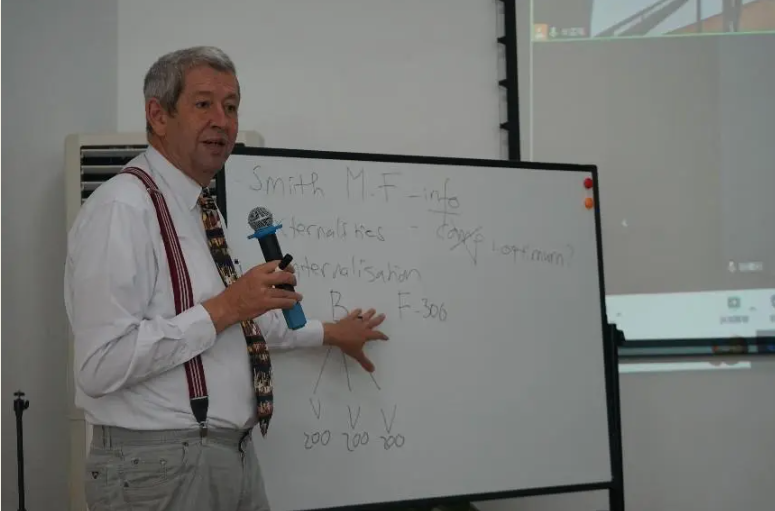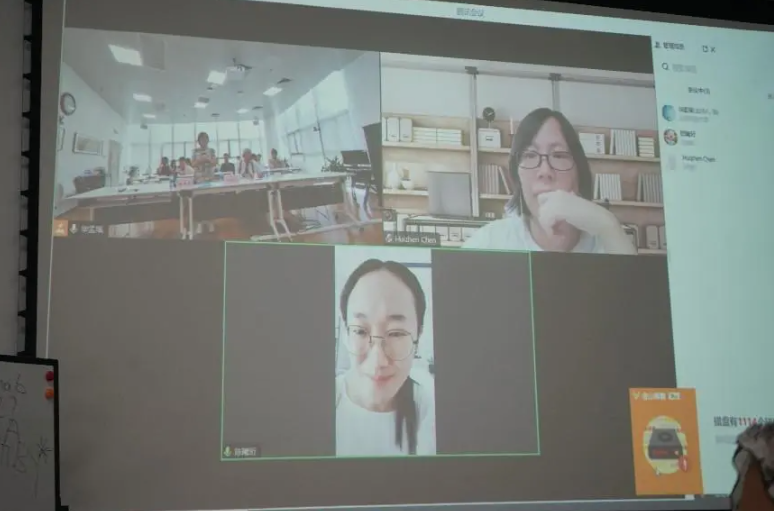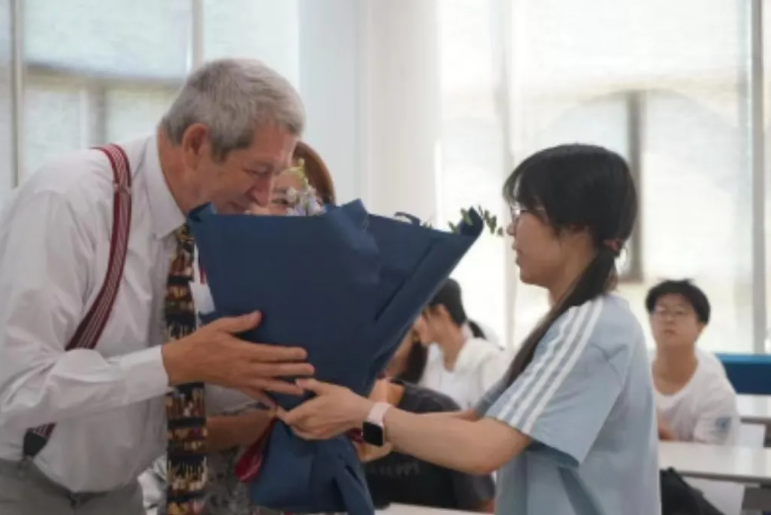
Meeting you in early autumn is precisely when the scenery in Zhuhai is at its most beautiful. In the balmy and invigorating month of September, Beijing Normal University at Zhuhai embraced a new cohort of students for the academic year 2024. As the term commenced, we had the distinct privilege of welcoming the esteemed international legal economist, Professor Michael Faure of Maastricht University in the Netherlands and Erasmus University Rotterdam, along with our fellow students, to engage in the collaborative endeavor of legal design.
On September 2, 2024, Professor Faure delivered a lecture entitled "The Economic Foundations of Environmental and Climate Change Law," which served as an auspicious beginning to the academic year. The event was skillfully hosted by Lecturer Wu Qian from the Law School of Beijing Normal University. The lecture also featured Associate Professor Chen Huizhen, Assistant Dean of the Law School of Sun Yat-sen University, and Lecturer Chen Xiyan from the Law School of Foshan University as panelist. The lecture delved into the principles, economic theories, and practical implications of environmental and climate change law. It explored the economic rationale behind the application of such laws and examined an array of innovative tools, including tort liability, regulation, taxation, and emissions trading, for addressing environmental and climatic challenges.

Lecture silhouette
To kick off the lecture, Lecturer Wu Qian provided an informative overview of Professor Michael Faure's distinguished research domain and his significant academic contributions to the students and extended heartfelt appreciation to Professor Faure for his enduring support to the Law School across the disciplines of law, economics, and environmental law. In turn, Professor Faure expressed his thanks for the warm invitation from the Law School.

Professor Faure's lecture
Professor Faure first guided the students to think about the externalities of economic activities. When private costs are less than social costs, maximizing private interests will be higher than maximizing social interests, leading to market failure. One way to deal with market failure is to internalize this externality and minimize social costs. In this process, what role can the law play? Professor Faure inspired students to explore the decision-making and costs borne by entrepreneurs in pollution control under different legal responsibilities by setting up a scenario that includes factories, business owners, and victims. The results show that regardless of strict liability, fault liability, or no liability, the market tends to install pollution treatment facilities. Through this brief case, Professor Faure vividly demonstrated the core idea of Coase's theorem and encouraged Chen Qiuru, who provided Coase's answer in the first place. Subsequently, he introduced the application scenarios and selection conditions of legal tools including post infringement liability, pre regulation, Pigou's taxation, Dales' carbon emission trading, etc. The students gained a deeper understanding of the economic logic behind the legal system.

Speak with the speaker
Associate Professor Chen Huizhen and Lecturer Chen Xiyan expressed their agreement and gratitude for Professor Faure's explanation, discussed the effective combination of economic theory and law, and unanimously agreed that economic tools should be implemented within a carefully designed legal framework to ensure their effectiveness. The JM students present also actively participated in the discussion and raised the question of "the implementation effect of ETS (Emissions Trading System) in Europe". Professor Faure provided a detailed answer to this, and the students were deeply nourished by knowledge and ideas.![]()

Activity Photo
This lecture not only expanded students' comprehension of the intricate bond between environmental law and economics but also enriched their insight into the field's complexity. Through comprehensive academic investigation and case studies, the students enhanced their theoretical knowledge while also acquiring practical viewpoints. The session was held in a relaxed and enjoyable setting, characterized by frequent and thought-provoking exchanges between faculty and students. It not only ignited a fervent desire for knowledge among the students but also exemplified the open and inclusive ethos of the Zhuhai campus, resonating with the values of the international academic community. Through this event, our institution has further solidified its ties with the global environmental law community, establishing a robust platform for future collaborations and exchanges.
